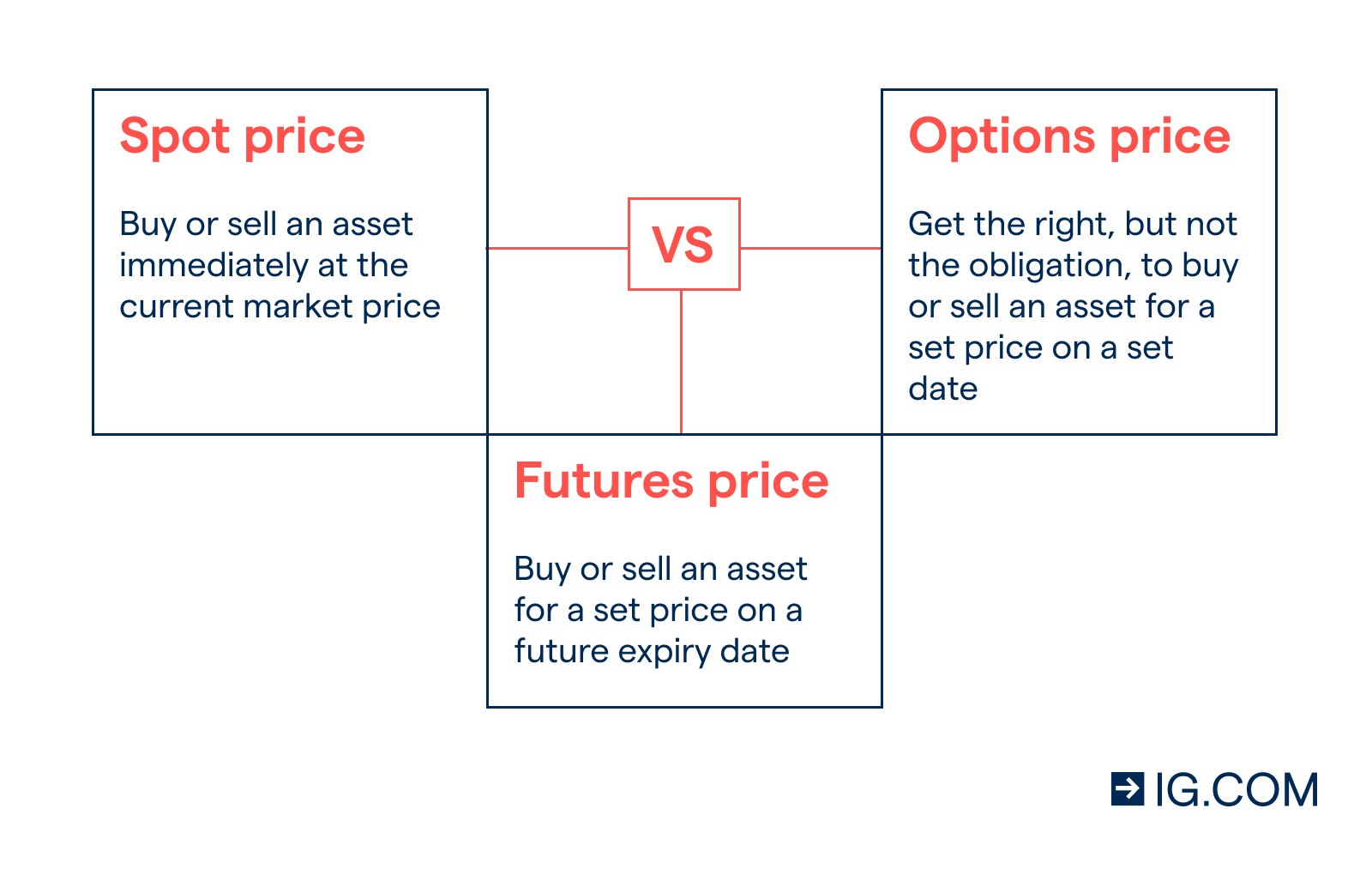Before venturing into the complex world of financial instruments, it’s imperative to delve into the nuances of three prevalent trading vehicles: options, futures, and exchange-traded funds (ETFs). Each of these options grants distinct opportunities and risks, and understanding their intricacies is crucial for informed decision-making.

Image: www.ig.com
Options vs. Futures vs. ETFs: An Overview
**Options** are contracts that provide the right, but not the obligation, to buy or sell an underlying asset at a predefined price on or before a specific date. Futures contracts, on the other hand, obligate the parties involved to buy or sell an asset on a future date and price. ETFs, conversely, are diversified baskets of securities that trade on exchanges just like stocks, offering exposure to a particular asset class or strategy.
Options grant flexibility, allowing investors to speculate on the future direction of an asset’s price without being obligated to complete the transaction. Futures, with their binding nature, are commonly employed for hedging or implementing arbitrage strategies. ETFs, by aggregating multiple securities, provide instant diversification, making them an attractive option for passive and long-term investors.
Deciphering the Latest Trends and Developments
In today’s ever-evolving financial landscape, keeping abreast of the latest trends and developments is paramount.
- ETFs: The proliferation of thematic ETFs, such as those tracking industries like artificial intelligence and electric vehicles, reflects the rising demand for niche and sector-specific investments.
- Options: The introduction of retail-oriented mobile and online trading platforms has democratized access to options, making them more accessible to a wider investor base.
- Futures: Crypto-linked futures contracts have surged in popularity, providing traders the ability to speculate on the price movements of cryptocurrencies without the need for direct ownership.
Expert Advice and Tips for Navigating the Market with Confidence
Seasoned traders have imparted invaluable wisdom, guiding investors through the complexities of trading these instruments.
- Mind the details: Thoroughly comprehend the terms and risks associated with each instrument before making any trades.
- Start with paper trading: Simulate real-world trading conditions without risking actual capital, honing your strategies and skills.
- Mastery through practice: Regular trading can enhance your understanding of market dynamics and improve your decision-making abilities.
- Seek professional guidance: Consult with a financial advisor if you are uncertain or require personalized advice to navigate the intricacies of trading.
Understanding these expert tips can empower you to make informed decisions in your trading journey.

Image: learn.financestrategists.com
Frequently Asked Questions: Unlocking Common Concerns
Q: What is the most beginner-friendly option among the three?
ETFs, due to their inherent diversification and liquidity, are generally considered suitable for novice investors.
Q: Is day trading futures profitable?
Profitability heavily depends on factors such as market conditions, strategy, and risk management. Therefore, it is not universally applicable.
Q: Can I trade options without margin?
Yes, you can trade most options contracts without margin, offering flexibility in position sizing and reducing potential losses.
Trading Options Futures Vs Etfs
Image: wealthdesk.in
Conclusion: Uncover Your Trading Potential
Options, futures, and ETFs present diverse opportunities for investors seeking both speculative and long-term gains. By unraveling the intricacies of each instrument and incorporating expert insights into your approach, you can confidently navigate the financial markets and harness their power to achieve your financial aspirations. Are you ready to explore the world of trading options futures vs ETFs to uncover your trading potential?






